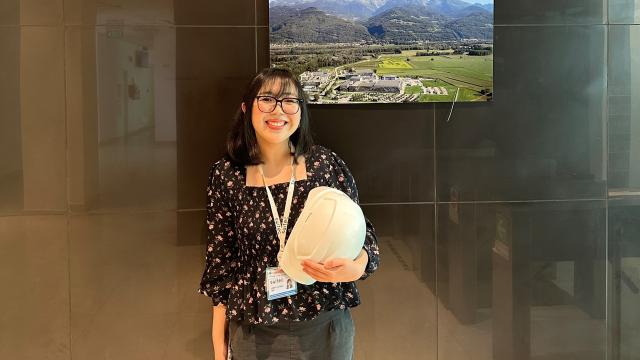
“Spoon feeding in the long run teaches us nothing but the shape of the spoon,” English writer Edward M. Forster once remarked. Indeed, mechanically preparing students to regurgitate class content does not adequately prepare them for their future careers.
To prepare its graduates for future uncertainties, the Singapore Institute of Technology (SIT) is set to infuse interdisciplinary learning into its programmes. This will help students to integrate adjacent knowledge and skillsets and work across disciplines in light of increasing industry disruptions.
Interdisciplinary learning
 Much of university learning today still occurs in neatly portioned silos, with individual modules targeted to impart subject-specific knowledge to students. However, the workplace is very different. Solving complex problems more often than not calls for teams with diverse backgrounds to put their heads together and come up with an integrated solution.
Much of university learning today still occurs in neatly portioned silos, with individual modules targeted to impart subject-specific knowledge to students. However, the workplace is very different. Solving complex problems more often than not calls for teams with diverse backgrounds to put their heads together and come up with an integrated solution.
Companies are also facing increasing competition and need innovations to move ahead. And innovations usually happen at the interfaces of disciplines.
SIT’s interdisciplinary approach responds to these trends. Starting from its new academic year in September 2021, the university will be rolling out curated curriculum revisions, introducing modules outside of students’ major disciplines to give them fundamental understanding of adjacent disciplines which they could add to later when required. The ultimate aim: for “about 15 to 20 per cent of students’ learning to be interdisciplinary”, notes Prof Chua Kee Chaing, SIT’s Deputy President (Academic) and Provost.
The university is also looking to offer team projects, which could span multiple years and involve students from multiple disciplines, to address either industry or community problems that require holistic solutions. Such projects also allow students to collaborate across disciplines and in the process, pick up valuable transferable skills such as teamwork, leadership and effective communication.
“SIT’s applied learning pedagogy already aims to nurture active learners through authentic learning problem sets and environments. The changes we are making will help to enable them to pivot in the face of disruptions in their industries, which will happen in their lifetime of careers”, Prof Chua comments.
Depth is still important
Today, SIT is known to offer specialised degree programmes that prepare its graduates to be professionals in their chosen fields of study. The new interdisciplinary elements will build on this strength, without compromising on a “deep disciplinary core”, Prof Chua explains.
Students will read modules from adjacent disciplines that are likely to impact or are already transforming their chosen professions. For instance, the hospitality industry will increasingly be disrupted by digitalisation and automation. Hospitality Business students will need to have fundamental knowledge of relevant ICT and Engineering subjects to be effective in their roles and to deepen their knowledge of these subjects later when required.
Micro-modules for life skills
SIT is also expanding its repertoire of online micro-modules. These micro-modules straddle a wide variety of topics, from degree-specific topics to workplace practices and life skills.
In general, the micro-modules aim to equip students with “useful practical and life skills for them to succeed in the workplace and in life”, Prof Chua tells us. Topics from career management and interpersonal skills to intellectual property and non-disclosure agreements provide students with important skills and knowledge as they go into industry attachments or launch their careers.
SIT plans to eventually make its library of online micro-modules available to its alumni as well. More than 20 micro-modules will be offered next year, with about five new modules added each subsequent year. Access to these will “make lifelong learning easier and more effective for SIT graduates,” comments Prof Chua.
In their working lifetime, graduates will need to navigate numerous uncertainties. By adding interdisciplinary and life-skills learning to its specialised degree programmes and welcoming graduates back for further upskilling and reskilling, SIT is preparing its graduates to meet these challenges head-on.
This feature first appeared on GovInsider.
![[FA] SIT One SITizen Alumni Initiative_Web banner_1244px x 688px.jpg](/sites/default/files/2024-12/%5BFA%5D%20%20SIT%20One%20SITizen%20Alumni%20Initiative_Web%20banner_1244px%20x%20688px.jpg)


